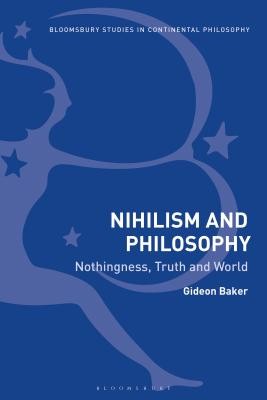
- We will send in 10–14 business days.
- Author: Gideon Baker
- Publisher: Bloomsbury Publishing PLC
- ISBN-10: 1350136743
- ISBN-13: 9781350136748
- Format: 15.6 x 23.4 x 1.4 cm, softcover
- Language: English
- SAVE -10% with code: EXTRA
Nihilism and Philosophy Nothingness, Truth and World (e-book) (used book) | bookbook.eu
Reviews
Description
The question of nihilism is always a question of truth.
It is a crisis of truth that causes the experience of the nothingness of existence. What elevated truth to this existential position? The answer is: philosophy. The philosophical will to truth opens the door to nihilism, since it both makes identifying truth the utmost aim and yet continually calls it into question.
Baker develops the central insight that the crises of truth and of existence, or 'loss of world', that occur within nihilistic thought are inseparable, in a wide-ranging study from antiquity to the present, from ancient Cynics, St Paul, Nietzsche, Heidegger, Foucault, Agamben, and Badiou.
Baker contends that since nihilism is always a question of the relation to the world occasioned by the philosophical will to truth, an answer to nihilism must be able to propose a new understanding of truth.
EXTRA 10 % discount with code: EXTRA
The promotion ends in 17d.18:25:18
The discount code is valid when purchasing from 10 €. Discounts do not stack.
- Author: Gideon Baker
- Publisher: Bloomsbury Publishing PLC
- ISBN-10: 1350136743
- ISBN-13: 9781350136748
- Format: 15.6 x 23.4 x 1.4 cm, softcover
- Language: English English
The question of nihilism is always a question of truth.
It is a crisis of truth that causes the experience of the nothingness of existence. What elevated truth to this existential position? The answer is: philosophy. The philosophical will to truth opens the door to nihilism, since it both makes identifying truth the utmost aim and yet continually calls it into question.
Baker develops the central insight that the crises of truth and of existence, or 'loss of world', that occur within nihilistic thought are inseparable, in a wide-ranging study from antiquity to the present, from ancient Cynics, St Paul, Nietzsche, Heidegger, Foucault, Agamben, and Badiou.
Baker contends that since nihilism is always a question of the relation to the world occasioned by the philosophical will to truth, an answer to nihilism must be able to propose a new understanding of truth.


Reviews